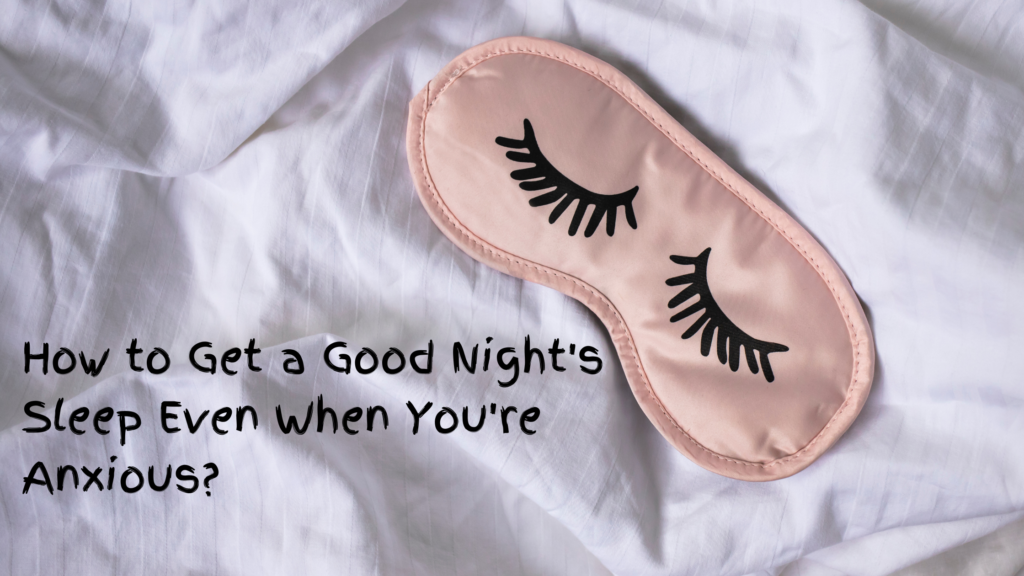Sleep is an essential part of our lives. It allows our bodies and minds to rest and rejuvenate, preparing us for the challenges of the day ahead. However, for those who worry excessively, getting a good night’s sleep can be a difficult task. In this article, we’ll explore the link between worrying and sleep, and provide practical tips for improving sleep quality even when you’re anxious.
The Link Between Worrying and Sleep
It’s no secret that worrying can interfere with sleep. When we’re worried, our minds race with thoughts and concerns, making it difficult to fall asleep or stay asleep. The science behind this connection lies in the fight-or-flight response, which is triggered by stress and anxiety. When we’re in this state, our bodies release adrenaline and other stress hormones, making it difficult to relax and fall asleep.
This can create a vicious cycle, as poor sleep quality can lead to increased worry and anxiety. The less sleep we get, the more likely we are to feel anxious and stressed, which can further interfere with sleep.
Tips for Improving Sleep When You’re Worried
Fortunately, there are practical steps you can take to improve sleep quality even when you’re worried. Here are some tips:
Establish a bedtime routine
Establishing a bedtime routine can be incredibly helpful for reducing worry and improving sleep quality. A routine can signal to your body that it’s time to wind down and prepare for sleep. Some tips for creating a relaxing bedtime routine include:
- Establish a consistent sleep schedule, going to bed and waking up at the same time every day, even on weekends.
- Create a relaxing bedtime routine, such as taking a warm bath, reading a book, or practicing meditation.
- Avoid stimulating activities before bed, such as watching TV or using electronic devices.
Create a sleep-conducive environment
Creating a sleep-conducive environment can also help improve sleep quality. Some tips for making your bedroom a sleep-friendly environment include:
- Keeping your bedroom cool, quiet, and dark.
- Investing in a comfortable mattress and pillows.
- Using curtains or blinds to block out light.
- Removing distractions, such as electronics or clutter.
Practice relaxation techniques
Practicing relaxation techniques can help reduce stress and anxiety, making it easier to fall asleep. Some examples of relaxation techniques include:
- Deep breathing exercises
- Progressive muscle relaxation
- Guided imagery or visualization
Manage your worries
Managing worries can be challenging, but it’s essential for improving sleep quality. Here are some strategies for managing worry and anxiety:
- Set aside time during the day to address your worries, rather than ruminating on them at night.
- Challenge negative thoughts and beliefs that contribute to worry and anxiety.
- Seek support from a therapist or mental health professional if needed.
Use technology to your advantage
Technology can be both a help and a hindrance when it comes to sleep. Here are some tips for using technology to aid sleep:
- Avoid using electronic devices before bed, as the blue light can interfere with sleep.
- Consider using sleep-related apps or devices, such as white noise machines or sleep trackers, to promote better sleep.
- Be mindful of the ways in which technology can contribute to worry and anxiety, and use it in a way that enhances, rather than hinders, sleep quality.
Also read: Sleep and mental health: The latest science and tips to improve both
Conclusion
In conclusion, worrying can interfere with sleep quality, but there are practical steps you can take to improve your sleep even when you’re anxious. Establishing a bedtime routine, creating a sleep-conducive environment, practicing relaxation techniques, managing worries, and using technology to your advantage can all help promote better sleep. If you’re struggling with anxiety and worry, seek professional help from a therapist or mental health professional.
FAQs
- How much sleep do I really need? Most adults need between 7-9 hours of sleep per night, but individual needs may vary.
- Can I still have coffee if I’m having trouble sleeping? It’s best to avoid caffeine later in the day, as it can interfere with sleep. If you’re having trouble sleeping, try cutting back on caffeine or avoiding it altogether.
- What if my worries are legitimate and I can’t stop thinking about them? It’s important to address legitimate worries, but it’s also important to set aside time during the day to do so, rather than ruminating on them at night. If your worries are interfering with your daily life, seek support from a therapist or mental health professional.
- What’s the best way to use technology to aid sleep? Using technology to aid sleep can be helpful, but it’s important to avoid using electronic devices before bed, as the blue light can interfere with sleep. Consider using sleep-related apps or devices, such as white noise machines or sleep trackers, to promote better sleep.
- How long does it take for these tips to start working? It may take some time for these tips to start working, as improving sleep quality is a gradual process. Be patient and consistent in implementing these strategies, and seek professional help if needed.

